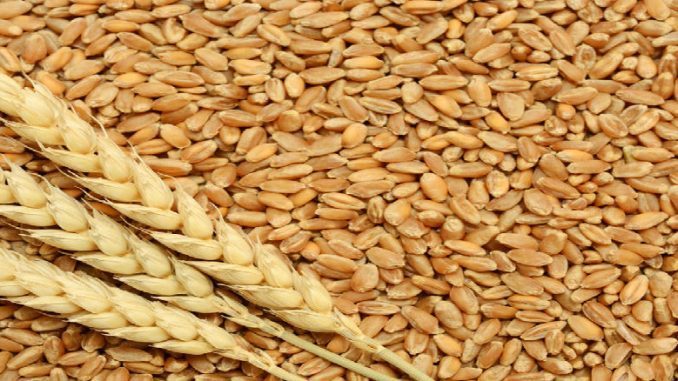
Egypt will switch to sourcing almost half a million tons of wheat from France and Bulgaria, after Moscow blocked the supply of Russian grain, according to people familiar with the matter, reported Bloomberg.
Moscow objected to the pricing of the bumper deal, the people said, asking not to be identified as the matter is private. It’s the second time in the past few months that the purchase of Russian wheat by Egypt’s state-run buyer has been thrown into turmoil as authorities in Moscow try to enforce an unofficial price floor.
Egypt’s General Authority for Supply Commodities agreed to buy 480,000 tons of Russian wheat in direct negotiations, Supply Minister Ali El-Mosilhy said at the beginning of September.
That deal was booked at $270 a ton including freight — lower than the unofficial price floor Russian officials were trying to implement at the time. Days later, Egypt said that crop trader Solaris would be allowed the option to supply grain from any origin.
Solaris and Russia’s agriculture ministry didn’t immediately respond to requests for comment.
Russia’s grain ports are overflowing after two consecutive bumper harvests, making it the dominant shipper and price-maker in the global market.
However, the supply glut is putting pressure on local prices, prompting officials to enforce a floor to shore up the market. The application of that price limit has been inconsistent.
Existential threat
The Russia-Ukraine war has turned Egypt’s food crisis into an existential threat to the nation’s economy, states Michael Tanchum in a report on MEI.
With the outbreak of the Russia-Ukraine war on Feb. 24, 2022, Egypt’s food security crisis now poses an existential threat to its economy. The fragile state of Egypt’s food security stems from the agricultural sector’s inability to produce enough cereal grains, especially wheat, and oilseeds to meet even half of the country’s domestic demand.
Cairo relies on large volumes of heavily subsidized imports to ensure sufficient as well as affordable supplies of bread and vegetable oil for its 105 million citizens. Securing those supplies has led Egypt to become the world’s largest importer of wheat and among the world’s top 10 importers of sunflower oil.
In 2021, Cairo was already facing down food inflation levels not seen since the Arab Spring civil unrest a decade earlier that toppled the government of former President Hosni Mubarak. After eight years of working assiduously to put Egypt’s economic house back in order, the government of General Abdel-Fattah al-Sisi is now similarly vulnerable to skyrocketing food costs that are reaching budget-breaking levels.
The Russia-Ukraine war catapulted prices to unsustainable levels for Egypt, increasing the price of wheat by an additional 44% and that of sunflower oil by 32% virtually overnight. Even more troublesome, the war also threatens Egypt’s physical supply itself since 85% of its wheat comes from Russia and Ukraine, as does 73% of its sunflower oil.
With activity at Ukraine’s ports at a complete standstill, Egypt already needs to find alternative suppliers. A further escalation that stops all Black Sea exports could also take Russian supplies off the market with catastrophic effect. With about four months of wheat reserves, Egypt can meet the challenge, but to do so, Cairo will need to take immediate and decisive action, which can be made even more effective with the timely support of its American and European partners.
Egypt’s massive wheat imports are driven by the widespread consumption of the traditional round flatbread known as eish baladi, a popular staple of every meal among the country’s working poor. Egyptians consume 150-180 kilograms of bread per capita, more than double the global average of 70-80 kg. Keeping the price of Egypt’s staple food affordable has been the bedrock of regime stability since the Free Officers revolution brought then-President Gamal Abdel Nasser to power 60 years ago.
When Nasser’s successor acceded to World Bank and International Monetary Fund (IMF)-mandated subsidy cuts on wheat flour, cooking oil, and other staples, it triggered Egypt’s infamous 1977 “bread riots.”
The gravity of the crisis compelled then-President Anwar Sadat to call out the army to suppress the protesters. Sadat’s successor, Mubarak, fared far worse when Egypt’s annual food inflation reached 18.9% in 2011 amid another round of World Bank and IMF-mandated subsidy cuts. Soaring bread prices — due in part at the time to a weather-related, lower-than-expected Russian wheat crop — kept Egypt’s working class on the streets, sustaining the protest movement for justice and dignity that toppled Mubarak and ended his 30-year rule.
Now Egypt again faces a severe wheat shortfall amid soaring prices. According to estimates from the United States Department of Agriculture (USDA), Egypt’s wheat production in marketing year (MY) 2021/22 will reach 9.0 million metric tons (MMT) while its consumption will total 21.3 MMT, leaving a 12.3 MMT shortfall to be made up with imports.
Even prior to Russia’s invasion of Ukraine, the prices for wheat imports were at record levels. The problem is that Egypt’s wheat production does not meet the nation’s consumption needs.



